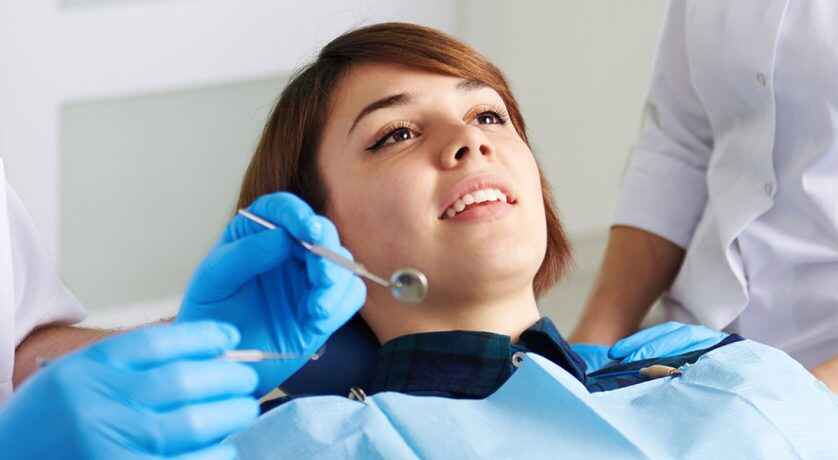Beyond Brushing: Why Professional Teeth Cleaning is Necessary?
August 1, 2025Brushing your teeth at home feels like enough, doesn’t it? You scrub for two minutes, floss when you remember, and maybe swish some mouthwash before running out the door. But despite your efforts, your mouth might still be hiding plaque, tartar, and early signs of gum issues. That’s where teeth cleaning in Grimsby, ON, steps in—and it’s far more valuable than you might think.

The Difference Between At-Home and Professional Teeth Cleaning
Let’s clear this up: brushing and flossing are your daily defense. But they’re not your only shield.
- Your toothbrush cannot reach most of tooth surfaces.
- Floss helps, but it can miss plaque that’s hardened into tartar.
- Mouthwash might freshen breath, but it doesn’t scrape off stubborn build-up.
A professional dental cleaning goes deeper. Dental hygienists use tools specifically designed to remove tartar and polish enamel, leaving your teeth smoother and more resistant to future build-up. Think of it like taking your car to a detailer—it’s cleaner, shinier, and in better shape than just a quick hose-off.
How Plaque and Tartar Build-Up Can Affect Your Oral Health
Plaque is sneaky. It’s soft, sticky, and forms every time you eat. If you don’t go for plaque and tartar removal within 48 hours, it can lead to things like:
- It irritates your gums and causes inflammation.
- Your breath starts to sour—tartar traps bacteria that release odor.
- It creeps below the gum line, opening the door to infection.
Untreated, this leads to more than just yellow teeth. It sets the stage for gum disease and even tooth loss. Catching it early, through routine cleanings, means you keep your mouth healthy and stay away from more serious (and costly) treatments later.
The Part of Dental Hygienists in Preventive Care
You might see your hygienist as someone who just scrapes teeth and reminds you to floss—but their role goes much deeper.
These trained professionals are your first line of defense. During a cleaning, they:
- Scan for signs of decay, gum disease, or oral cancer.
- Remove plaque and tartar from tricky spots.
- Offer personalized advice on brushing techniques and tools.
- Track changes over time to catch patterns or early issues.
Regular visits ensure that small concerns don’t become big problems. And yes, they notice if you’ve been skipping floss—but they’re not judging. They’re there to help you improve and stay on track.
Signs You’re Overdue for a Professional Teeth Cleaning
Not sure if it’s time to book an appointment? Your mouth might already be telling you. Here are red flags to watch for:
- Bleeding of gums while you brush or floss
- Persistent bad breath, even after mouthwash
- A fuzzy feeling on your teeth after brushing
- Noticeable build-up or yellowing between teeth
- Your last cleaning was more than six months ago
These symptoms could point to issues beyond surface-level plaque. A local dentist or a dentist in Grimsby can assess what’s happening and get you back on track.
How Often Should You Get Your Teeth Professionally Cleaned?
Every smile is different, but most people benefit from two cleanings a year. However, your dentist may advise you for more frequent visits if you:
- Smoke or use tobacco
- Are pregnant (hormones affect gums!)
- Have diabetes or heart disease
- Struggle with gum issues or heavy tartar build-up
The key is consistency. Skipping cleanings lets plaque harden, bacteria thrive, and gums recede. Regular visits act like checkpoints, ensuring small problems don’t snowball into something more serious.
The Link Between Professional Cleanings and Gum Disease Prevention
Here’s the real truth: brushing alone won’t stop gum disease. It helps, but gum health depends on deeper care.
Professional cleanings reach beneath the gum line where bacteria love to hide. By removing tartar and monitoring pocket depth around each tooth, hygienists help prevent gingivitis from turning into periodontitis (a more progressive stage of gum disease that can lead to tooth loss).
Cleanings also disrupt harmful bacteria colonies that can inflame your gums and cause irreversible damage. Without intervention, this inflammation doesn’t just stay in your mouth—it can impact your whole body, linking to heart disease and diabetes complications.
Why Consistent Cleanings Make a Difference
Imagine skipping oil changes for your car. Everything seems fine… until it’s not. The same idea applies to your mouth.
- You’ll keep your gums firm and pink—not red and puffy.
- You reduce the risk of cavities by eliminating hidden plaque.
- You maintain a healthier smile and fresher breath.
- You save money by avoiding expensive restorative treatments later.
And perhaps the most underrated benefit? Confidence. When your mouth feels clean, you feel better. You speak more freely. You smile more often. That’s not vanity—it’s self-care.
Conclusion
Daily brushing is important—but it’s not enough. Just like you can’t expect a shower to replace a yearly physical, your at-home oral routine can’t take the place of professional dental care. If it’s been a while, it’s time to prioritize your oral health.
At Bartlett & Main Family Dental Centre, we believe prevention is powerful. With gentle hands, personalized advice, and thorough cleanings, you’ll get more than just a polished smile—you’ll get peace of mind.
